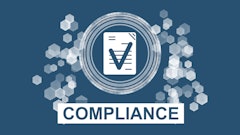
One of the most sweeping supply chain laws in history is set to pass soon in Europe. In December, the European Union reached a provisional addressment on its long-anticipated Corporate Sustainability Due Diligence Directive (CSDDD), a law mandating companies to actively monitor and rectify any human rights and environmental risks within their global supply chains. The directive, which is now on track to get into effect as early as 2026, will establish a new benchmark in corporate accountability, requiring businesses to implement due diligence processes that include risk assessments, risk mitigation measures, and monitoring mechanisms for both social and environmental sustainability. The law will apply to all businesses based in or doing business in the EU.
As governments around the globe push for more transparent and ethical supply chains, the CSDDD follows in the footsteps of a growing slate of hugely consequential due diligence laws recently enacted. Germany’s new supply chain law requires large companies operating in the country to establish preventative measures to prevent child labor, poor working conditions, and environmental abuses at all levels of their supply chain. The United States has cracked down on forced labor with its Uyghur Forced Labor Prevention Act, which went into effect in 2022 and is targeted at imported goods from China's Xinjiang region. Canada, meanwhile, just enacted its own supply chain law aimed at eradicating modern slavery and promoting social sustainability.
As the CSDDD moves closer to becoming reality, the call for brands and retailers to fortify their supply chains with robust traceability solutions has never been more urgent. These regulations have made it abundantly clear that a superficial understanding of an enterprise's supply chain is no longer sufficient. Companies are now expected to have a comprehensive and documented grasp of their entire supply chain, from top to bottom, and that requires a true commitment to traceability.
Brands and retailers must remember that this push isn’t solely driven by regulatory pressures. It's also a response to changing consumer behaviors. Today's consumers are increasingly aware of the social and environmental footprint of their purchases, with 75% of U.S. consumers now saying they’re concerned about the environmental impact of products they buy. Brands that can provide transparency and ethical assurances in their supply chains can build stronger connections with these customers, enhancing brand loyalty, and carving out a competitive edge in a crowded market.
The Clear Need to Digitalize Traceability
To comply with these forceful new supply chain laws, brands and retailers must implement comprehensive due diligence processes to ensure thorough risk assessments, effective mitigation measures, and robust monitoring systems. Businesses must scrutinize every tier of their supply chain, from raw material sourcing to final product delivery, ensuring that each segment adheres to stringent human rights and environmental standards. This requires a shift from traditional supply chain practices to a more transparent, multi-tier digital approach. Companies will need to invest in technologies and platforms that offer real-time visibility and traceability across their entire supply chain, enabling them to quickly identify and address any areas of concern.
In the near future, this traceability will need to extend to the component level for every item on the bill of materials at all tiers, underscoring the necessity for advanced digital platforms to manage these intricate processes. Such platforms offer more than traditional record-keeping; they enable real-time visibility and documentation, which is critical for adhering to rigorous standards set by laws like the CSDDD. Such technologies allow for swift identification and remediation of supply chain inefficiencies, enabling companies to implement improvement plans and track progress.
Beyond mere regulatory compliance, traceability solutions offer a strategic advantage. They provide insights into supply chain efficiency, product quality, and risk management. With a deep understanding of their supply chains, businesses can make informed decisions that optimize operations, reduce waste, and enhance sustainability efforts. This strategic value of traceability transforms it from a regulatory response into a core element of a company’s competitive strategy. A critical understanding has emerged in modern supply chain management: traceability and transparency are not just isolated activities but are integral to every process in the supply chain. True traceability must encompass everything from procurement, production, and logistics to sales and post-sale services to create a continuous thread of transparency that weaves through every aspect of the supply chain, offering holistic insights and control.
Committing to traceability solutions is a strategic necessity, pivotal for adhering to new regulations but also for defining a brand’s values in a market that increasingly prizes transparency and ethical practices. The companies that respond proactively to this call will be the ones leading the charge in the future of sustainable business, while gaining a competitive advantage by securing the trust of their consumers. The message for brands and retailers is clear: The time to reinforce your supply chains with robust traceability solutions is now.


























